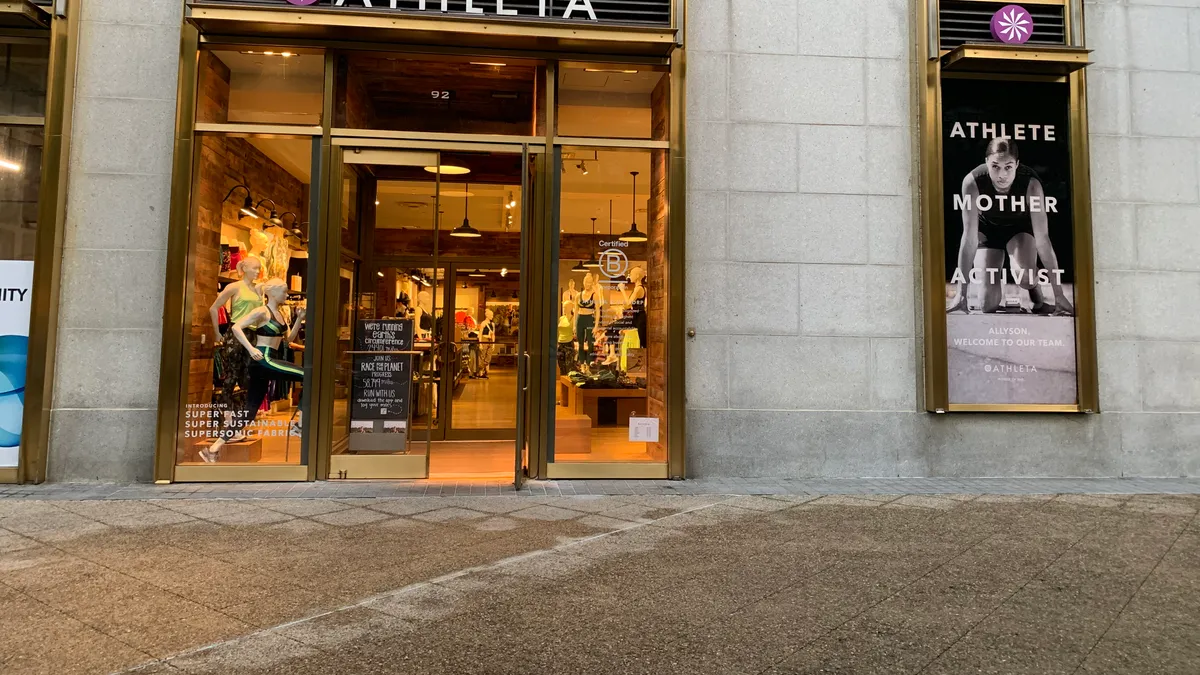Digital visitor registration platform Envoy's podcasts pull in up to 100K listeners every week, and even though performance metrics are still evolving in this space, preliminary results suggest the format is having a positive impact.
Podcasts have been around for a while but are experiencing a resurgence due to the growth in smartphone adoption and a few mainstream successes such as Serial, which tells a non-fiction story over several episodes. Envoy, inspired by Slack’s successful branded podcast, launched its own series earlier this year and quickly discovered that podcasts require a unique approach.
“A podcast is an intimate format," Hollie Wegman, VP of Marketing at Envoy, told Marketing Dive. "There are no visuals to distract you — it's all about the story. So, if the story is poor you're doomed because no one will listen.
"In terms of ‘failures,’ I think what we learned is you have to focus on story curation because different stories will appeal to different listeners," she added. "At the start, we had a wide mix of stories and that fragmented our audience in terms of subscribers. Since then, we have tightened up curation.”
Why podcasts are engaging
While the sheer number of people engaging with podcasts pales compared to video content, fans tend to be passionate about the format, spurring brands like Prudential, Netflix and GE to make them a part of their content marketing strategy.
Studies have also shown podcasts ads are particularly effective. Research from September 2016 by the IAB and Edison Research found that almost two-thirds of podcast listeners are more inclined to consider purchasing products and services advertised on podcasts, while about 60% of consumers surveyed said they prefer to purchase from brands that advertise on their favorite podcasts.
Separate research from comScore in June 2016 found that podcasts are the preferred medium for digital ads for consumers between 18 and 49. And in September 2016, the Interactive Bureau put out its first guidelines for podcast advertising.
For marketers looking to get started in podcasts, Envoy's Wegman stresses the importance of strong stories over branding.
“As one of the core values of the Envoy brand is to delight users, our content is focused on telling exceptional stories," Wegman explained. “We choose stories and topics that uncover innovative people thinking differently about problems and solving them in new ways.
“Our branding approach to date has been incredibly subtle," she added. "Our primary focus is providing interesting content and letting people enjoy our stories of people doing innovative things in the office.”
The content approach Envoy uses in its podcasts comes from understanding its customers as people who are trying to solve problems in new ways. Wegman said that is how most Envoy customers find them in the first place because they are trying to “ditch paper and pen at the front desk.”
An advantage that a branded podcast has over webinars for content marketing is there’s a different commitment level for the audience. Wegman pointed out Envoy has short, three to five minute podcasts that appeal to people who simply don’t have the time to attend a 30 minute or hour long webinar.
Marketing and measuring the podcast
In terms of marketing its podcast, Wegman said Envoy does a number of things beginning with promoting new recordings through its social channels, Product Hunt and via its Medium blog where it also publishes a companion weekly blog post. The company works with an agency to create the recordings and broadcast them via its website, SoundCloud, iTunes and Stitcher.
Envoy also engages in co-marketing, featuring another company's hack in its podcasts.
“We've also curated the podcasts into bundles like the 'Raspberry Pi Hack' bundle and worked to promote these bundles with third-party companies that might have an interest in the group of podcasts — like the Raspberry Pi Foundation," Wegman said. "That's another way of co-marketing the podcasts.”
Envoy puts a strong focus on channel building such as with Apple’s iTunes and Stitcher by keeping the platforms informed on upcoming podcast topics so the channels have the opportunity to feature Envoy’s podcast.
One challenge with podcasts is measuring success because podcast delivery platforms haven’t been created with marketers in mind.
“Measuring the success of a podcast is legitimately tough,” Wegman said.
Some of the KPIs that Envoy tracks include downloads, listens and subscribers, but she added that the definition of a listen or download varies by different podcast platforms. To counter this, Envoy also includes growth of email list and visits to its podcast landing page as additional performance metrics.
Even though podcast metrics are tricky, Envoy reports more than 1.6 million downloads from 28 episodes and 48 five-star ratings on the Apple store. Additionally, the podcasts reach between 80K and 100K listeners every week.
“We can see more easily how these map to further engagement," Wegman said. "We also take sentiment seriously. We want to feel people enjoy the podcast and that it ties to our brand in a positive light so we look at ratings, social mentions and reactions from the press as well."













